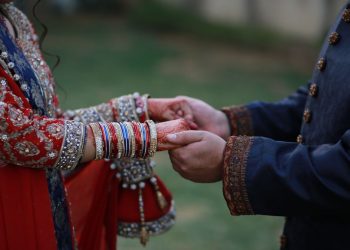The furniture, household linen, bundle of cloths, and other things that are given by the bride’s family to the groom’s family is called Jahaiz or dowry on the marriage. Dowry is different from the Mahr
Mahr is an agreement that is making between the future husband of the bride and guardian of the bride in which the groom pays a certain amount of money to the bride. It is an obligation on the groom to pay some money in the shape of Mahr to his future wife.
It is clearly defined about the Mahr in the holy Quran. But if we talk about the dowry, then we come to know that it is not an obligation of the bride or her family. And also holy Quran didn’t describe anything about the dowry. In most cases, brides bring furniture, clothes, house, etc from her parents only when they got married. Islamic Sharia’h has not prohibited the fulfilment of Jahaiz.
The grooms don’t force their future wife to demand Jahaiz from their parents but if the bride’s parents asked her to divide the Jahaiz then they can deny accepting this Jahaiz. When the parents give Jahaiz to her daughter then they cannot claim on that Jahaiz. That Jahaiz now becomes the property of your daughter.
Only in one situation, the parents may demand to return the Jahaiz when they gave the Jahaiz on the loan agreement. Likewise parents, the groom also doesn’t have the right to claim on the jahaiz. But only in one situation, he claims on the jahaiz, if the jahaiz is bought with that money that is given by the groom to bride in the shape of Mahr. If she purchased with this money it becomes part of Mahr and he can claim on that jahaiz.
If the bride’s father has a legal agreement in which it is mentioned the specific things that he is giving to his daughter as a jahaiz are on loan and unfortunately if she died then he can have the right to claim on those pieces of jahaiz.
If her father does not have any legal agreement then it will become her part of her personal property. The jahaiz can be divided by the brides and her parents endorse the ideas that enter into the marriage. The marriage that demand for the jahaiz in the Middle East can prey to the rise of Islam.
In the Islamic Sharia’h, there is no prohibition for women to take part in the jahaiz. It is legal rights for the married girl to share the part of the family’s wealth under the Islamic rules.








